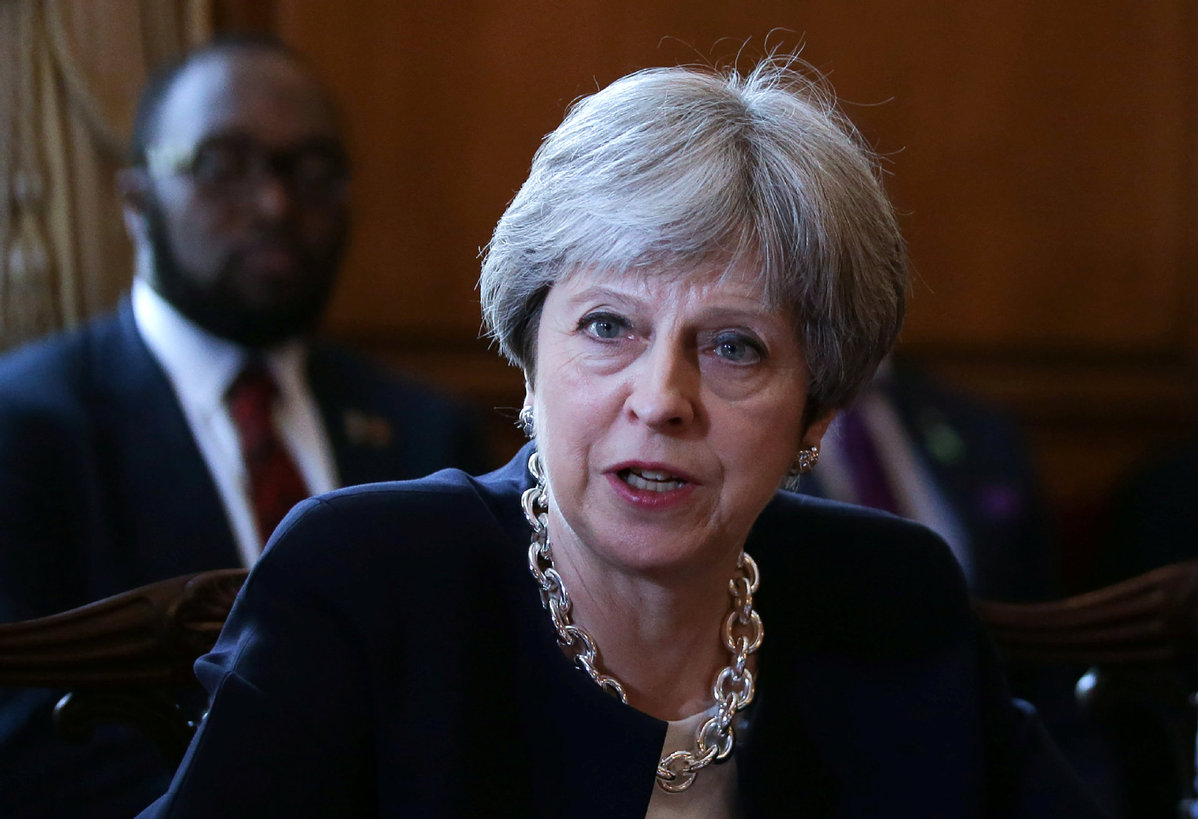May apologizes to postwar migrants
By Julian Shea in London | China Daily | Updated: 2018-04-18 09:59

British Prime Minister Theresa May apologized to representatives from 12 Caribbean countries on Tuesday over recent harsh treatment by immigration bureaucrats of people who arrived in Britain as children between the late 1940s and the early 1970s.
The so-called "Windrush generation", whose parents were invited to Britain to plug labor shortfalls after World War II, have been caught up in a tightening of immigration rules overseen by May in 2012 when she was interior minister.
"I want to apologize to you today because we are genuinely sorry for any anxiety that has been caused," May told leaders and diplomats from the Caribbean countries, who were in London for a summit of Commonwealth heads of government.
British Home Secretary Amber Rudd has also apologized for the "appalling" treatment given by her own department to the Windrush Generation after it emerged long-term United Kingdom residents were being threatened with deportation to the Caribbean countries.
The Empire Windrush was the first boat to bring people from Jamaica to the UK after the war, and under the 1948 Nationality Act, they were invited as British citizens. The name is now used as a general term for people who arrived from former British Empire territories in subsequent years.
It has now emerged that people who have lived in the UK for decades are being challenged to prove their right to be in the country, or face being sent to countries they left as children.
The Home Office even published guidelines to people sent back to Jamaica to "help them settle" such as "Try to be 'Jamaican'-use local accents and dialects".
The issue caused outrage across the political spectrum.
Conservative MP Jacob Rees Mogg described it as "absolutely dreadful. These people are as British as you or I", adding that it was "a deep disgrace".
Labour MP David Lammy, the son of immigrants from Guyana, told Parliament it was "a day of national shame", and blamed the situation on a "hostile environment" toward immigrants which he said was down to Rudd's predecessor - Prime Minister May.
Media outlets have carried stories of people in their 50s and 60s who came to the UK as children being asked to prove their entitlement to medical care, and in some cases losing jobs, but until recently, May stood by the policy.
Reuters contributed to this story.
























